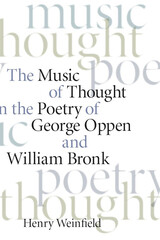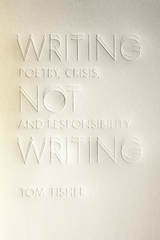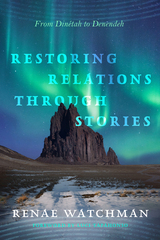3 books about Oppen, George

The Music of Thought in the Poetry of George Oppen and William Bronk
Henry Weinfield
University of Iowa Press
George Oppen (1908–1984), born into a prosperous German Jewish family, began his career as a protégé of Ezra Pound and a member of the Objectivist circle of poets; he eventually broke with Pound and became a member of the Communist party before returning to poetry more than twenty-five years later. William Bronk (1918–1999), by contrast, a descendant of the first European families in New York, was influenced by the works of Shakespeare, the King James Bible, and the work of the New England writers of the American Renaissance. Despite differences in background and orientation, the two men formed a deep friendship and shared a similar existential outlook. As Henry Weinfield demonstrates in this searching and original study, Oppen and Bronk are extraordinary thinkers in poetry who struggled with central questions of meaning and value and whose thought acquires the resonance of music in their work. These major writers created poetry of enduring value that has exerted an increasing influence on younger generations of poets.
From his careful readings of Oppen’s and Bronk’s poetry to his fascinating examination of the letters they exchanged, Weinfield provides important aesthetic, epistemological, and historical insights into their poetry and poetic careers. In bringing together for the first time the work of two of the most important poets of the postwar generation, The Music of Thought not only illuminates their poetry but also raises important questions about American literary history and the categories in terms of which it has generally been interpreted.
From his careful readings of Oppen’s and Bronk’s poetry to his fascinating examination of the letters they exchanged, Weinfield provides important aesthetic, epistemological, and historical insights into their poetry and poetic careers. In bringing together for the first time the work of two of the most important poets of the postwar generation, The Music of Thought not only illuminates their poetry but also raises important questions about American literary history and the categories in terms of which it has generally been interpreted.
[more]

The Selected Letters of George Oppen
Rachel Blau DuPlessis, ed.
Duke University Press, 1990
Objectivist poet George Oppen (1908–1984), along with his contemporaries Lorine Niedecker, Charles Reznikoff, and Carl Rakoski, provide an important bridge between the vanguard modernist American poets and the later works of poets such as Robert Creeley. In work often compounded by the populist urbanity of city lives, the Objectivists explored the social statements poetry can make. Because Oppen wrote only one essay and one essay-review, his correspondence, in effect, constitutes his essays. Oppen is emerging as one of the major poets of the postwar era; he was the recipient of an American Academy and Institute of Arts and Letters Award, the PEN/West Rediscovery Award, and a Senior Fellowship from the National Endowment for the Arts. His collection Of Being Numerous received the 1969 Pulitzer Prize for Poetry.
These working papers include a rich correspondence, letters which provide access to the sustained, perceptive body of critical and aesthetic thinking of Oppen’s poetic career. Provocative and witty comments on poetry and poetics, especially interesting for the development of an Objectivist aesthetics, and shrewd, deeply felt assessments about the politics of the twentieth century and its moral dilemmas are some of the issues attended to. This edition offers primary documentation about an influential poetics, a little-known movement, and its active figures. Given the aggressive studies of the politics of canon-formation, the interest in describing a historical context for individual literary achievement, and current debates about mainstream poetry, the rethinking of the Objectivist movement, and the collection of documents contributing to its poetics, is an important achievement in literary scholarship.
These working papers include a rich correspondence, letters which provide access to the sustained, perceptive body of critical and aesthetic thinking of Oppen’s poetic career. Provocative and witty comments on poetry and poetics, especially interesting for the development of an Objectivist aesthetics, and shrewd, deeply felt assessments about the politics of the twentieth century and its moral dilemmas are some of the issues attended to. This edition offers primary documentation about an influential poetics, a little-known movement, and its active figures. Given the aggressive studies of the politics of canon-formation, the interest in describing a historical context for individual literary achievement, and current debates about mainstream poetry, the rethinking of the Objectivist movement, and the collection of documents contributing to its poetics, is an important achievement in literary scholarship.
[more]

Writing Not Writing
Poetry, Crisis, and Responsibility
Tom Fisher
University of Iowa Press, 2017
The poet George Oppen comments, “There are situations which cannot honorably [be] met by art, and surely no one need fiddle precisely at the moment that the house next door is burning.” To write poetry under such circumstances, he continues, “would be a treason to one’s neighbor.” Committing himself, then, to more direct and conventional forms of response and responsibility, Oppen leaves poetry behind for twenty-five years. The disasters of the 1930s, for Oppen, put poetry into a fundamental question that could not be resolved or overcome. Yet if crisis is continual, then poetry is always turning away from the neighbor in need, always an irresponsible response in a world persistently falling apart.
Writing Not Writing both confirms this question into which crisis puts poetry and explores alternative modes of “response” and “responsibility” that poetry makes possible. Reading the silences of Oppen, Carl Rakosi, and Bob Kaufman, the renunciation of Laura Riding, and other more contemporary instances of poetic abnegation, Tom Fisher explores silence, refusal, and disavowal as political and ethical modes of response in a time of continuous crisis. Through a turn away from writing, these poets offer strategies of refusal and departure that leave anagrammatical hollows behind, activating the negational capacities of writing and aesthetics to disrupt the empire of sense, speech, and agency.
Fisher’s work is both an engaging and detailed analysis of four individual poets who left poetry behind and a theoretically provocative exploration of the political and ethical possibilities of silence, not-doing, and disavowal. In lucid but nuanced terms, Fisher makes the case that, from at least modernism forward, poetry is marked by refusals of speech and sense in order to open possibilities of response outside conventional forms of responsibility.
Writing Not Writing both confirms this question into which crisis puts poetry and explores alternative modes of “response” and “responsibility” that poetry makes possible. Reading the silences of Oppen, Carl Rakosi, and Bob Kaufman, the renunciation of Laura Riding, and other more contemporary instances of poetic abnegation, Tom Fisher explores silence, refusal, and disavowal as political and ethical modes of response in a time of continuous crisis. Through a turn away from writing, these poets offer strategies of refusal and departure that leave anagrammatical hollows behind, activating the negational capacities of writing and aesthetics to disrupt the empire of sense, speech, and agency.
Fisher’s work is both an engaging and detailed analysis of four individual poets who left poetry behind and a theoretically provocative exploration of the political and ethical possibilities of silence, not-doing, and disavowal. In lucid but nuanced terms, Fisher makes the case that, from at least modernism forward, poetry is marked by refusals of speech and sense in order to open possibilities of response outside conventional forms of responsibility.
[more]
READERS
Browse our collection.
PUBLISHERS
See BiblioVault's publisher services.
STUDENT SERVICES
Files for college accessibility offices.
UChicago Accessibility Resources
home | accessibility | search | about | contact us
BiblioVault ® 2001 - 2024
The University of Chicago Press









